Excellence in academic programs and service to communities
The College of Education is a vibrant community of students, academic programs, faculty, staff, and partners all working together to make the world a better place. We strive to ensure our academic programs generate deep, meaningful learning in real-world settings, resulting in more just, healthy, and educated communities.
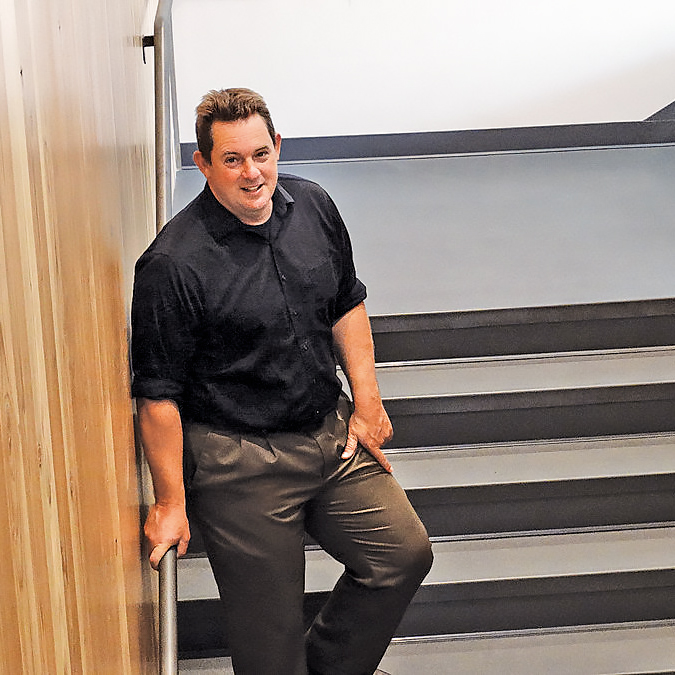
About the College
From Mark Girod, Dean of the College of Education
Several core values underlie all our work including justice, equity, inclusivity, service, and application of our gifts in the real world. Our shared goals are to improve the world for our communities, the individuals with whom we work, and the world at large. That is an audacious goal – to change the world – but we strive for no less and we want others to join us in the quest to make the world a better place through the work we do together!
If you are curious about how we work to accomplish our major goals, check out the College of Education Theory of Action. Here you can learn more about how we organize ourselves, how we invest our internal resources, and how we allocate our time and energy in ways that contribute to our two major goals – to deliver excellent academic programs and to serve our communities – so we can indeed change the world.
By the numbers
Academic divisions
Undergraduate and graduate programs
Dedicated faculty and staff members
Graduates each year
Our Theory of Action
The stars below show the pieces that form the College of Education’s “theory of action” – our roadmap for achieving our goals. We see this occurring at two levels. First, there must be faculty and program-level work so we can change ourselves. Second, there must be college and community-level development so we can change the world around us.
Faculty and Program Development
-
Teaching talksGive space to talk about practices that support high quality teaching and learning.
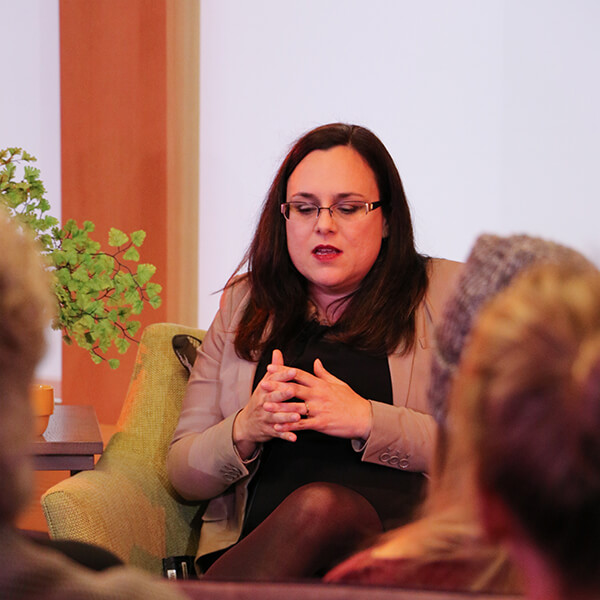 Community Health professor Dr. Cancel-Tirado at a College of Education fireside chat.
Community Health professor Dr. Cancel-Tirado at a College of Education fireside chat. -
Scholarship supportUse resources to more effectively support faculty scholarship.
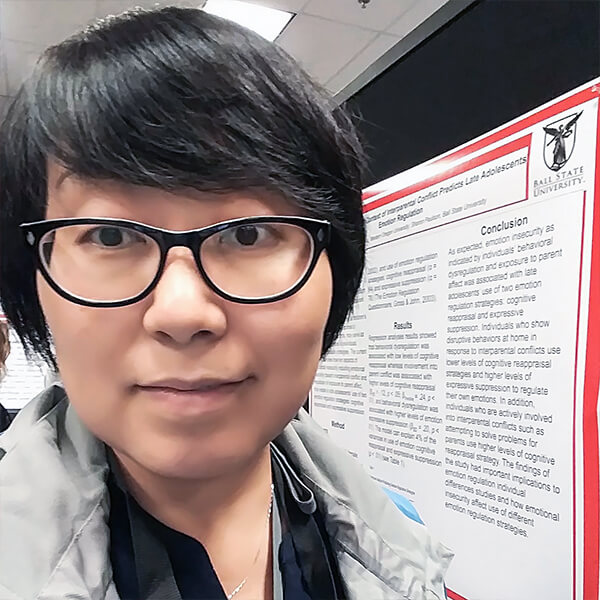 Dr. Xiaopeng Gong, recipient of the 2021 T.H. Gentle Professorship. Read story.
Dr. Xiaopeng Gong, recipient of the 2021 T.H. Gentle Professorship. Read story. -
Clear outcomes and accreditationAssure our programs and assessments are aligned to clear outcomes and that we meet and exceed professional accreditation standards.
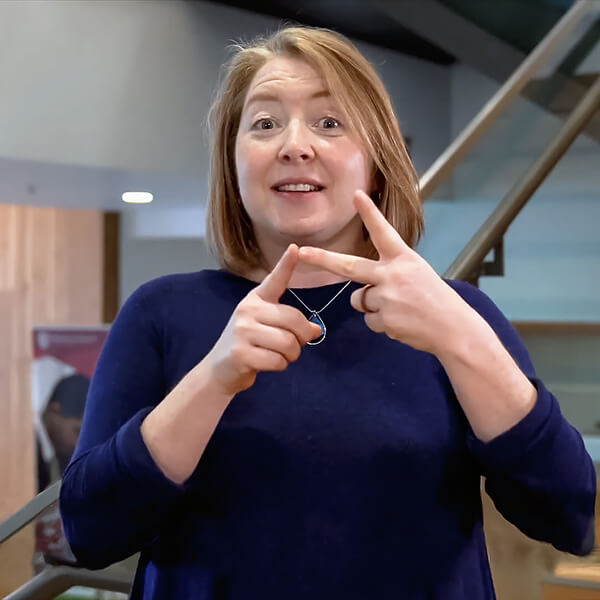 Dr. Denise Thew Hackett shares about the nationally accredited Rehabilitation and Mental Health Counseling program.
Dr. Denise Thew Hackett shares about the nationally accredited Rehabilitation and Mental Health Counseling program. -
Travel supportUse resources to support travel for professional development and to build opportunities for students and faculty to learn abroad.
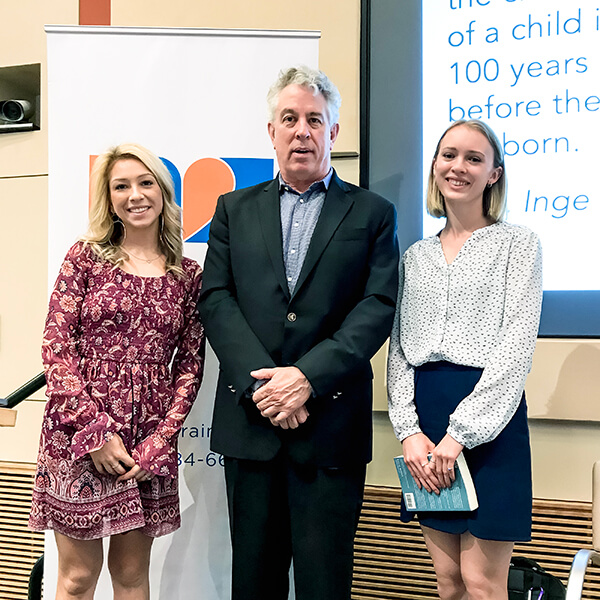 Early childhood studies students Alexis Klatt and Jasper Corcoran joined faculty in Los Angeles to hear from Dr. Bruce Perry, an expert in early childhood trauma.
Early childhood studies students Alexis Klatt and Jasper Corcoran joined faculty in Los Angeles to hear from Dr. Bruce Perry, an expert in early childhood trauma. -
Service supportSupport a shared belief in service to our communities.
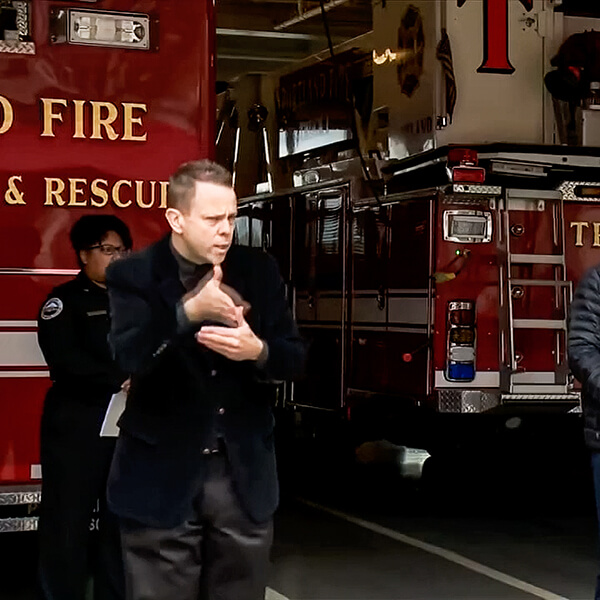 Research & Resource Center with Deaf* communities director and certified deaf interpreter Chad Ludwig helps in fight against COVID-19. Read story.
Research & Resource Center with Deaf* communities director and certified deaf interpreter Chad Ludwig helps in fight against COVID-19. Read story. -
High-impact practicesUse high-impact practices across our academic programs.
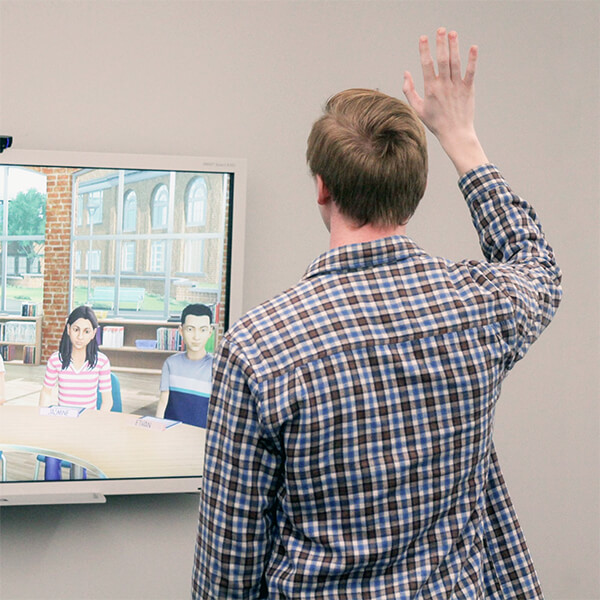 Teacher Ed. student Jeremiah Price teaching a lesson using Mursion simulation software. Read story.
Teacher Ed. student Jeremiah Price teaching a lesson using Mursion simulation software. Read story. -
Technology professional developmentProvide opportunities to continue to teach, learn, engage, and organize our work with technology.
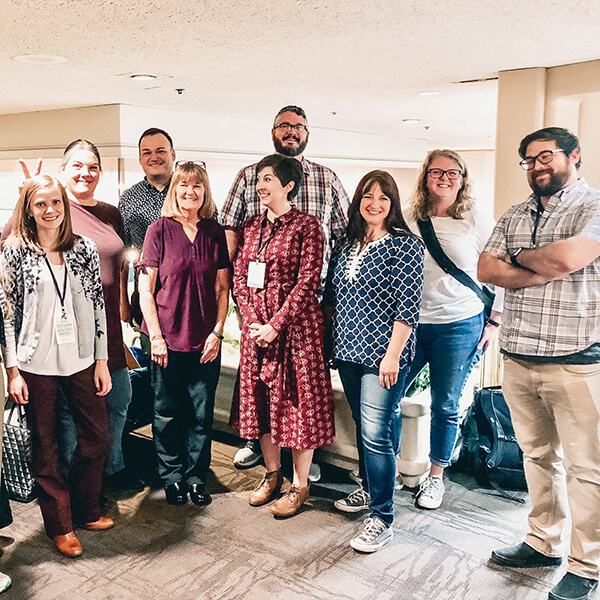 EdTech faculty and students at the annual NWeLearn conference.
EdTech faculty and students at the annual NWeLearn conference. -
MentoringAssure new community members have mentors that help them learn, grow, and develop.
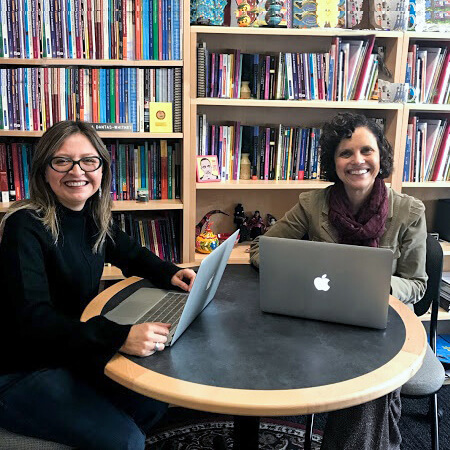 Visiting Fulbright Scholar Dr. Alba Lucy Guerrero and WOU professor Dr. Maria Dantas-Whitney working on a joint research project. Read story.
Visiting Fulbright Scholar Dr. Alba Lucy Guerrero and WOU professor Dr. Maria Dantas-Whitney working on a joint research project. Read story.
College and Community Development
-
MediaTell stories about the successes demonstrated in the College of Education.
 Former graduate assistant Amy Spielmaker as she works on a story for our blog, COE Highlights.
Former graduate assistant Amy Spielmaker as she works on a story for our blog, COE Highlights. -
JEDI workPromote a more just, equitable, diverse, and inclusive world.
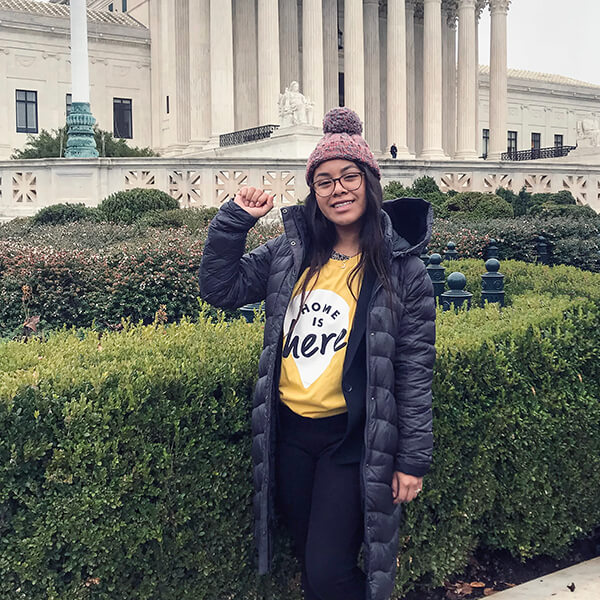 Community health student Cristina Garcia Toche outside the Supreme Court Hearing of DACA. Read story.
Community health student Cristina Garcia Toche outside the Supreme Court Hearing of DACA. Read story. -
Shared visionDevelop a shared vision within programs and divisions and across the College of Education so we can all see how our actions contribute to our vision.
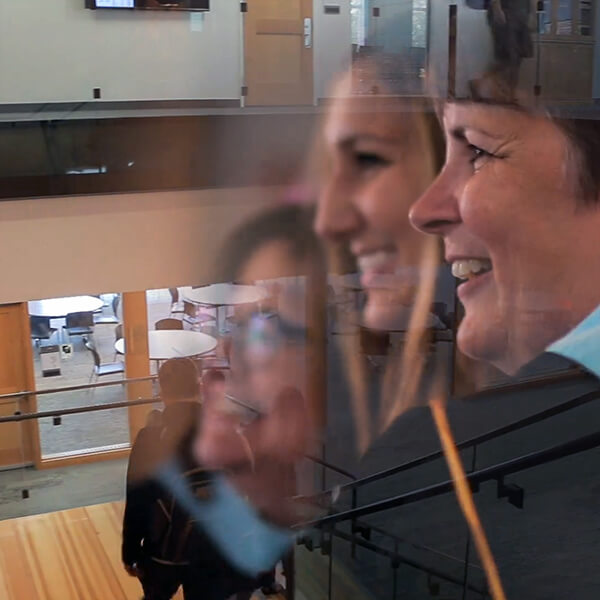 Still from Roots – the story of WOU's history of excellence in education, a video produced by Q Loop, the College of Education’s video production team.
Still from Roots – the story of WOU's history of excellence in education, a video produced by Q Loop, the College of Education’s video production team. -
Fund for excellenceDevelop and use a robust fund to support the COE Theory of Action.
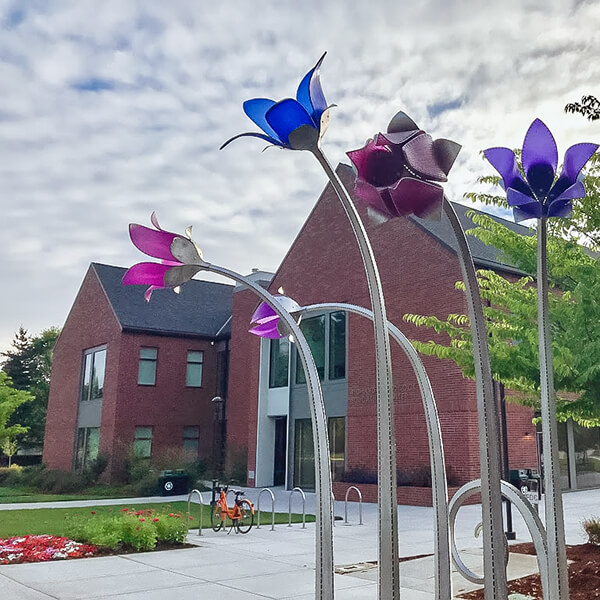 Blossoming “Growth” sculpture outside of the Richard Woodcock Education Center, home of the College of Education. Photo credit: Laura Lyon.
Blossoming “Growth” sculpture outside of the Richard Woodcock Education Center, home of the College of Education. Photo credit: Laura Lyon. -
Continuous improvementEnact a robust system of continuous improvement for both individual academic programs and for the entire College of Education.
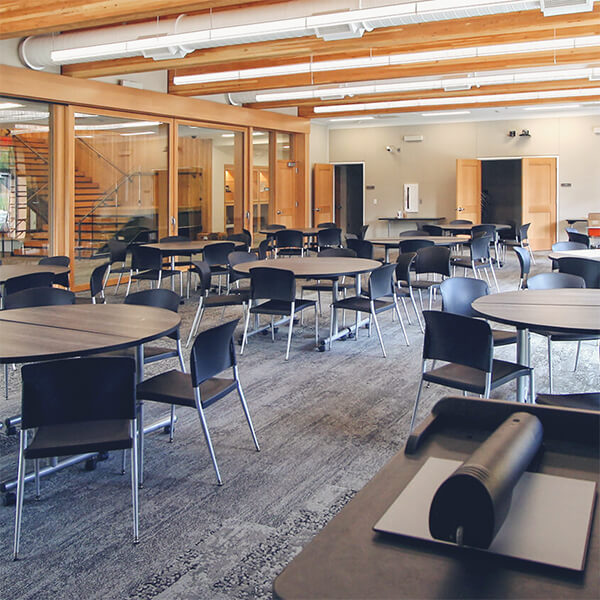 RWEC 101, the go-to spot for many college-wide meetings.
RWEC 101, the go-to spot for many college-wide meetings. -
PartnershipsDevelop and maintain robust partnerships within our communities to accomplish the applied nature of our work.
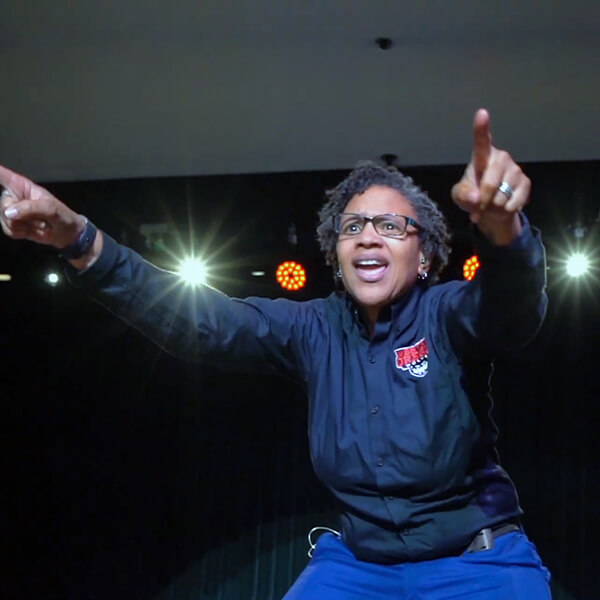 ASL instructor Tie Burcham in a video showcasing WOU’s community of deaf studies and professional studies, produced in collaboration with Seek The World.
ASL instructor Tie Burcham in a video showcasing WOU’s community of deaf studies and professional studies, produced in collaboration with Seek The World. -
Culture of serviceEnact a culture of service toward students, communities, and one another.
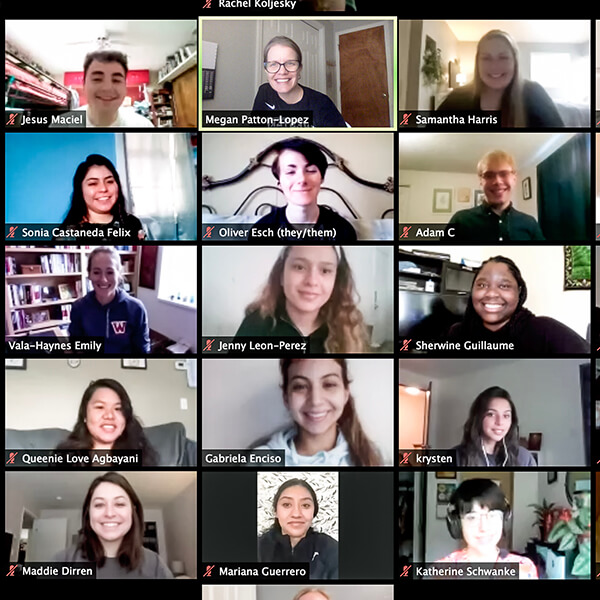 The community health COVID-19 project team supporting our community through contact tracing and public health education.
The community health COVID-19 project team supporting our community through contact tracing and public health education. -
Workplace satisfactionAssess regularly and adjust as necessary so we all feel good about coming to work each day.
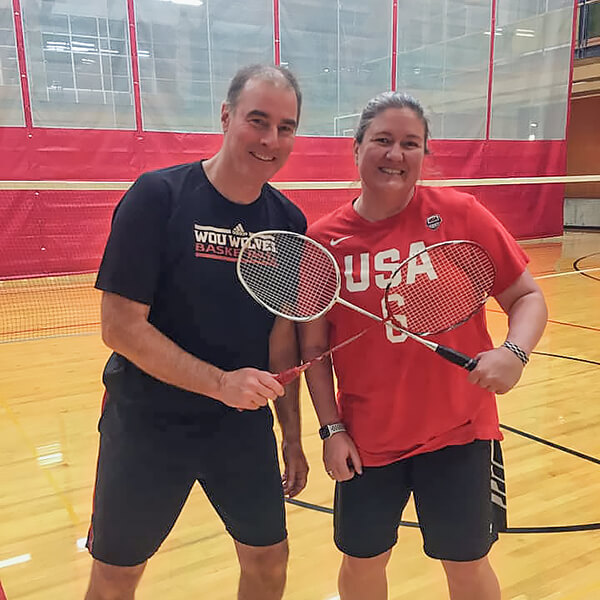 Health & Exercise Science faculty Tom Kelly and Dr. Jen Taylor-Winney play a round of badminton.
Health & Exercise Science faculty Tom Kelly and Dr. Jen Taylor-Winney play a round of badminton.
Learn More
Academics in the COE
Our academic programs prepare skilled professionals in the fields of education, interpreting, American Sign Language, health promotion, and exercise science.
COE Highlights
COE Highlights is our blog – with stories written by, for, and about College of Education students, faculty, and staff. Check it out!
J.E.D.I.
The J.E.D.I. office works to ensure our teaching, service, and research is grounded in principles of justice, equity, inclusion, and diversity.

